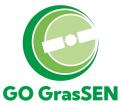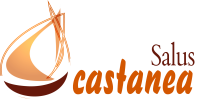VARILABOR Operational Group: Development of agricultural soil machinery for variable depth
- Type Operational group
- Status In progress
- Execution 2023 -2027
- Assigned Budget 150.000,00 €
- Scope Autonómico
- Autonomous community Aragón
- Main source of financing CAP 2023-2027
- Project website GO VARILABOR
The expected results of the GO Varilabor project include key improvements in soil health and productivity. One of the main achievements will be the design of a precision agriculture system and the foundation for a geolocated soil compaction map, which will allow for the identification of highly compacted areas and the design of targeted intervention strategies.
In addition, variable-depth plowing will reduce compaction, improving water infiltration, nutrient retention, and root growth. Organic matter will be increased by incorporating crop residues at different depths, which will increase soil fertility. Pest and disease control will be optimized by burying infected residues at depths where their impact is reduced.
A more efficient distribution of water and nutrients will allow for better use of these resources, increasing productivity. Finally, soil biological activity will be fostered, promoting the presence of microorganisms and earthworms, which will contribute to improving soil structure and fertility.
The GO Varilabor project is structured into five key work packages.
- Coordination PT1 focuses on the overall management of the project, ensuring its proper supervision and monitoring, and on the administrative justification of progress.
- In PT2 of Hydraulic, Mechanical, and Electronic System Design, the development of the plow's mechanical system, the hydraulic system that will allow the working depth to be adjusted, and the electronic control system to monitor and adjust these parameters from the tractor are addressed.
- Precision Agriculture System Design PT3 focuses on integrating precision farming technologies such as GPS and connectivity to enable efficient plow use, along with the development of a web application that will allow the farmer to manage operating data and adjust the system to their needs.
- In the PT4 trial phase, agronomic studies and field tests of the prototype will be conducted to validate its performance under real-world conditions and evaluate its impact on soil health and productivity.
- Finally, PT5 Communications and Outreach will be responsible for publicizing the project's progress through presentations at trade shows and conferences, media appearances, and online presence, with the goal of maximizing visibility and promoting the adoption of the variable-depth moldboard plow. These activities are aligned with the goal of creating an innovative solution for sustainable agriculture, improving tillage efficiency and promoting soil health.
The GO Varilabor project is part of the growing importance of soil health management, a central issue in modern agriculture due to its impact on environmental sustainability and agricultural productivity. Soil health is not only vital for optimal plant growth but also plays a crucial role in mitigating climate change by storing organic carbon.
Soil degradation, such as compaction, is one of the main problems affecting intensive agriculture, limiting water and nutrient retention and root growth. In this context, proper tillage, along with conservation practices, balanced fertilization, and residue management, are essential for maintaining soil health. Technology has begun to play a fundamental role in improving soil health, with tools such as moisture, temperature, and conductivity sensors, as well as precision agriculture, which allows for the more efficient application of inputs tailored to soil characteristics.
Through these technological advances, the GO Varilabor project seeks to develop a variable-depth plow that reduces soil compaction, improves soil structure, promotes water infiltration, and enables better management of water and nutrient resources.
The project seeks to develop a variable-depth moldboard plow, utilizing a hydraulic system with progressive cylinders and sensors to adjust the depth in real time. The plow is expected to reduce soil compaction, improve water infiltration and nutrient retention, and promote root growth where used. Furthermore, the project will optimize energy and economic efficiency and contribute to agricultural sustainability.
- Coordinator/entity name: ARAGON AGRICULTURAL MACHINERY CLUSTER
- Postal address: Calle Santander, No. 36, 2nd Floor, 50010 Zaragoza
- Coordinator/entity email: JMCASTELL@CAMPAG.ORG
976 76 60 63
- CLUSTER MAQUINARIA AGRICOLA DE ARAGON
- ARADOS FONTAN SL(gestion@aradosfontan.com)
- MECAPLUS SL(administracion@mecaplus.es)
- LAURA DOMINGUEZ(lauradomgarcia@gmail.com)
- CENTRO TECNOLOGICO METALMECANICO Y DEL TRANSPORTE(a.merino@cetemet.es)
- CLUSTER MAQUINARIA AGRICOLA DE ARAGON







